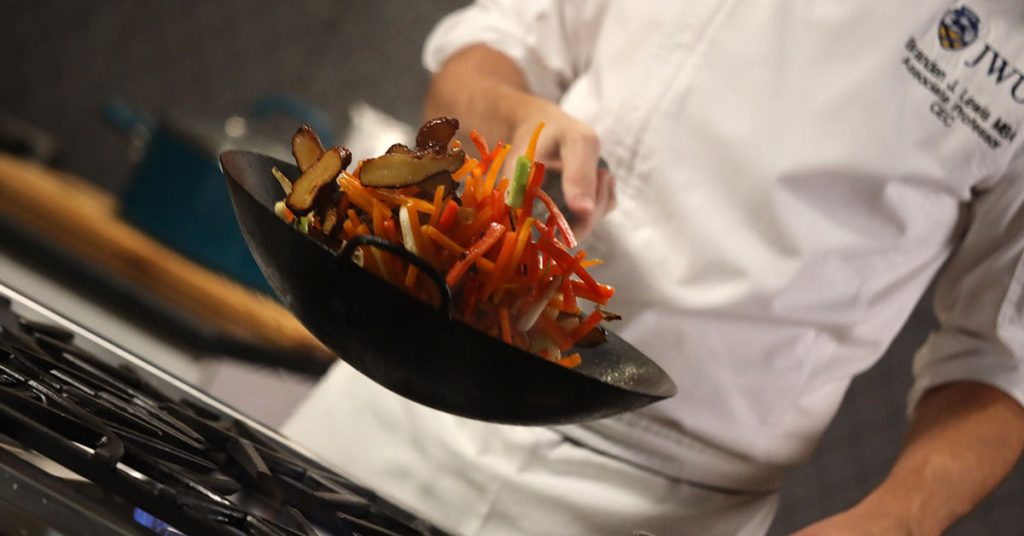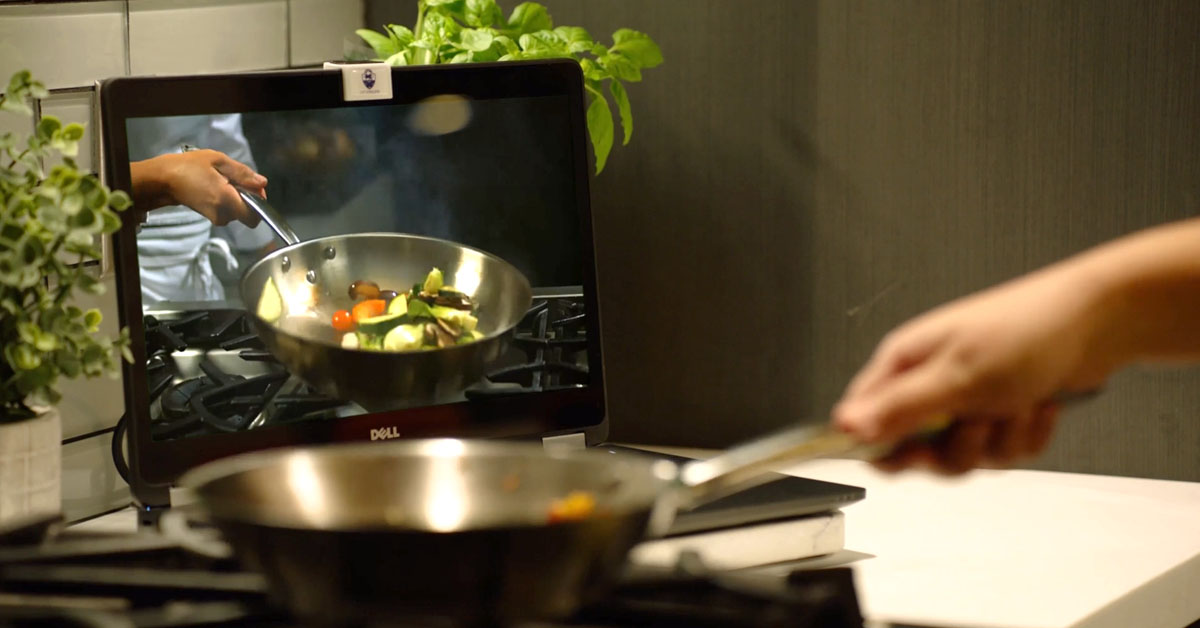Are you eager to gain skills that will advance your professional culinary career?
Johnson & Wales Online, in collaboration with JWU’s College of Food Innovation & Technology, is now enrolling for the Spring 2025 online Professional Culinary Skills Certificate (PCSK) program. Johnson & Wales is recognized as a worldwide leader in culinary education.
Scott Smith, Director of Online Culinary Programs for JWU Online explains, “The Professional Culinary Skills Certificate program prepares students for careers in food production and other career paths where food production serves as the foundation of success. Delivered 100% online, students are able to access course materials on their own schedule and complete cooking assignments in the comfort of their home or other familiar kitchen.”
Consisting of six culinary lab courses and one food safety course for a total of 19 credits, the PCSK program can be completed in three semesters. Culinary laboratory courses are delivered through an online multimedia environment in which students can focus on the progressive development and practice of culinary skills and techniques, cooking methods and ingredient identification.
Smith adds, “Students learn basic knife skills, preparation of breakfast and menu items, the exploration of global cuisines and cultures and gain the competencies to sit for a Conference for Food Protection-approved Food Safety Manager Certification Exam.”
To complete their assignments, students will need a desktop or laptop computer (other than a Chromebook) to record videos of themselves preparing food. The university supplies a webcam and tripod as part of the online culinary equipment students receive, which includes a uniform, equipment kit, knife set and a spice rack.
Recent graduate Sara Osorio ’23 praised the program; “When I read the chef instructors’ bios, I was amazed, thinking: ‘Wow, they have so much experience. They’ve been everywhere. They’ve been directors of this and head chef of that.’ I felt so fortunate to be learning from them.”
Proof of high school completion or a GED is required for admission to this culinary arts certificate program. Students must complete a mandatory orientation prior to the start of program, which provides an overview of JWU and sets expectations for students in the program. The orientation prepares prospective students for a successful program start by familiarizing them with the learning management system and giving them an opportunity to practice submitting a video assignment.

How Do You Learn to Cook Online?
Throughout their courses, the videos students record of themselves producing food in their kitchen are reviewed by chef professors, who provide each individual with feedback.
Smith clarifies, “The student’s video recording must meet specific requirements according to the assignment, but generally shows the mise en place of tools, equipment and ingredients, specific skill shots and the sights and sounds of the cooking process.”
Online culinary graduate Rich Clay ’23 commented, “I was surprised at the many ways we both used our senses to analyze my cooking techniques. My chef professors could look at a dish and know whether the food was perfectly cooked and if I had seasoned the dishes well — they could also hear whether I had cooked the food at too high a temperature.”
Smith emphasizes, “Most important, is that you produce a sensory analysis of the food you prepared for each assignment. You will learn how to explain the food you are cooking and tasting to your chef instructor, so they can provide you with the appropriate feedback.”
Clay explained, “Only I could smell and taste the food and feel the different textures in my mouth. I worked hard on learning about flavor profiles and expanding my vocabulary to adequately explain my sensory analysis. My teachers offered valuable feedback and instructed me on how to make the dishes taste better.”
Highlighting how the culinary lab courses differs from traditional academic courses, Smith explains, “Each of the online culinary lab courses are developed on the concept of competency-based learning. In each lesson and learning module you will need to successfully demonstrate the completion of a task, skill, or competency before being allowed to move on to the next lesson or learning module. As you progress through each lesson and learning module, there will be assessments that measure the competencies you have learned in the module.”
Smith continues, “These can be repeated until you have mastered the skill. You will be given the opportunity to attempt a given competency or skill multiple times and receive continuous feedback from the instructor. At the end of the course, there will be a Final Project & Practical, which measures your final mastery of the competencies or skills.”
Clay remarked, “The support from the culinary faculty helped me meet the challenge of earning the degree online. Whenever I submitted my class assignments or emailed with questions, I received a response within a day. The JWU Online faculty and staff were extremely helpful and obviously care about their students.”
The online Professional Culinary Skills program at Johnson & Wales Online prepares graduates to advance in career paths in which skills and knowledge of food production serves as the basis for success. For more information about the PCSK program at Johnson & Wales Online, complete the Request Info form, call 855-JWU-1881, or email [email protected].
